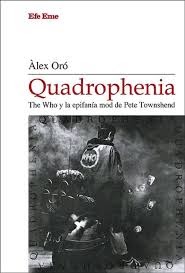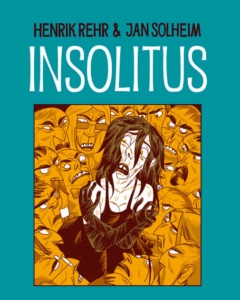
Original Language: castellano
Year of publication: 2024
Valoración: Highly recommended for fans
It gives me a little anger because memory is rampant a little when trying to remember this point: it may be Txomin, at the time my 70’s disc supputor, who gave me known to Quadrophenia. What I can say is that shortly after I did not stop until I found the specimen I was looking for, with its generous taco of photos inside and with the cut (Doctor Jimmy) that Franco had censored, and I also know where I bought it. But I can’t remember where I first saw the first of many, the movie of the same title, of 1979, which of course I incorporated something later to my old and very small collection of videos. Even so, both the album and the film left a deep mark, to the point that when reading this book by àlex oó I did not need to listen to those songs again, because they were very fresh in my head.
Between the sixty -two reviews that curl under the label Books about music (See right here) There is a bit of everything, but in a quick look I see very few books that deal with a specific album. It is a first quality that I see the work of àlex prayed, it seems brave and demonstrates the ability to focus on something very concrete without having to resort to accompaniment material. Because, as I pointed before, we are basically talking about Quadropheniathe double album that The Who published in 1973.
The Who was a fairly powerful group with several albums behind them, of rather irregular success, perhaps overshadowed by the Beatles and Stones, although with numerous and very faithful followers. They had published Tommywhat was called a rock opera, that is, a conceptual work with songs that as a whole told a story, and after another ambitious attempt, this failed, its leader and main composer Pete Townshend (which some will know for their love of destroying guitars in their concerts) conceived Quadrophenia Along the same lines, a narrative built through dozen and a half of songs. It tells the story of a working -class young man in the early 60s, with mental or personality problems, which seeks integration and recognition in the MOD movement, of a certain relevance at that time.
The story that the album presents is not that it is very original, but the hitch with this musical current gave him good doses of popularity, although neither The Who nor his music could be tagged properly as mods. The film of the same title that premiered a few years later contributed to creating a kind of mod, recovering the famous fights on the beaches of Brighton and the ephemeral life of these youth gangs, all of which left a certain trace in some groups that already in the 80s wanted to revive their aesthetics and their rhythms.
But here we talk about books, and it must be said that àlex prayed, without losing at any time the focus on the history of the album, has efficiency and sobriety its genesis, dissects some parts of its libretto and analyzes its intentions, the position of the members of the group, the junction of history with some aspects of the Mod movement, and the influence it represented in the world of music. It would have been easy (and good claim for chascarrillos -eager readers) to extend in frivolous episodes about alcohol addictions or pills, damage to hotels or fights, which would leave in simple anecdote the encounters between the Gallagher brothers, for example.
There was plenty of material to fill enough more pages of topics in the world of rock, but the author does not get carried away by temptation and reduces it to the indispensable minimum. What interests is how that album was created, what was its meaning and why it became a reference of a certain way of composing in those 70s, until it became a milestone of the time. If perhaps, perhaps the book can be reproached to put the accent more in the narrative aspect and much less in the purely musical. But even so, no music fan of those decades already so distant should stop reading it.
Source: https://unlibroaldia.blogspot.com/2025/04/alex-oro-quadrophenia.html


